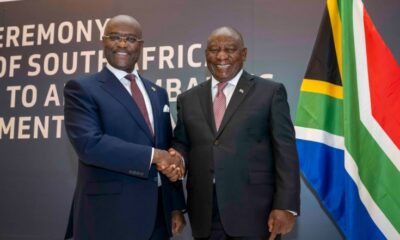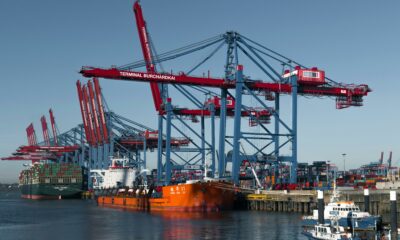Business
South Africa’s Moment to Lead: Seizing the AfCFTA to Build Africa’s Industrial Future

The African Continental Free Trade Agreement (AfCFTA), launched in 2021, is more than a policy shift—it’s a transformative moment. It brings together 54 nations to create a single African market with a combined GDP of over US$3.4 trillion. For South Africa, the continent’s most industrialized economy, this represents a chance to lead Africa’s future on our own terms.
South Africa stands at a crossroads. With abundant mineral wealth, a solid financial ecosystem, and advanced manufacturing capabilities, it is well-positioned to drive the next phase of Africa’s industrial growth. But success will require more than just potential—it demands bold action, clear strategies, and inclusive leadership.
Why AfCFTA Matters Now
The global economy is shifting. Supply chains are fragile. Global powers are competing for Africa’s lithium, cobalt, and rare earths. Meanwhile, Africa’s population is booming—expected to make up nearly 40% of the world’s total by 2060.
AfCFTA provides a framework to harness these advantages. The World Bank estimates it could lift 30 million Africans out of extreme poverty and increase regional incomes by 7% by 2035. South Africa’s leadership in this pact is critical—not just for its own economy but for the continent’s collective future.
As IMF Managing Director Kristalina Georgieva noted, “Africa isn’t just rising; it’s ready to lead.” But readiness is not enough. We need delivery.
Challenges on the Ground
Despite its potential, the road to AfCFTA success is not smooth. South Africa faces stubborn infrastructure challenges: port delays in Durban, underdeveloped rail networks, and congested road corridors are all barriers to trade efficiency. Our youth, while rich in potential, remain locked out of high-growth industries like green energy and advanced manufacturing due to a mismatch in skills.
Outdated customs protocols and fragmented trade regulations also continue to create unnecessary red tape—undermining SMEs and regional value chains.
Turning Challenges into Catalysts
Yet within these challenges lie opportunities for innovation:
-
Infrastructure renewal: A focused investment in ports, rail, roads and broadband could unlock new trade corridors and manufacturing hubs.
-
Skills development: Retraining miners to become solar installers, or upskilling youth in digital industries, could bridge the skills gap while reducing unemployment.
-
Regulatory reform: Harmonizing standards and simplifying cross-border trade will make it easier for South African products to reach African markets—and vice versa.
South Africa’s mineral wealth could power electric vehicle supply chains. Our tech startups could support payment systems across the continent. Our steel could build the cars manufactured in regional value chains.
The Role of Private and Public Leadership
For AfCFTA to succeed, South African businesses—large and small—must expand their footprint beyond national borders. Sasol, MTN, and fintech innovators alike must think continentally. Meanwhile, government needs to collaborate with neighbours to co-develop regulations, infrastructure and data systems.
Youth must be empowered not as beneficiaries, but as co-creators. The rise of M-Pesa in East Africa is proof of what’s possible when young Africans are given the tools to lead innovation.
A Practical Step Forward: The AfCFTA Task Force
One concrete way forward is the creation of a South Africa-led AfCFTA Task Force within six months. This task force should include business leaders, policymakers, economists and youth leaders. Its mission? To identify and operationalize one regional trade value chain and one cross-border skills hub by 2027.
This isn’t about more talk. It’s about pilots, logistics reforms, and real jobs.
The Time to Lead is Now
South Africa already has what many African nations aspire to: relative political stability, strong banks, industrial capacity and international credibility. But complacency will cost us.
If we act boldly—by investing in education, streamlining public spending, and linking our industries with regional partners—we won’t just grow our own economy. We will drive Africa’s emergence as a global industrial force.
AfCFTA is already law. The foundation is in place. What’s needed now is vision, execution and courage.
History is watching. Let South Africa lead—intentionally, inclusively, and with pride.
{Source: IOL}
Follow Joburg ETC on Facebook, Twitter , TikTok and Instagram
For more News in Johannesburg, visit joburgetc.com


























